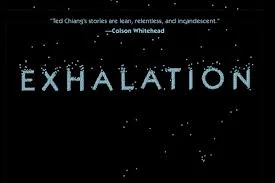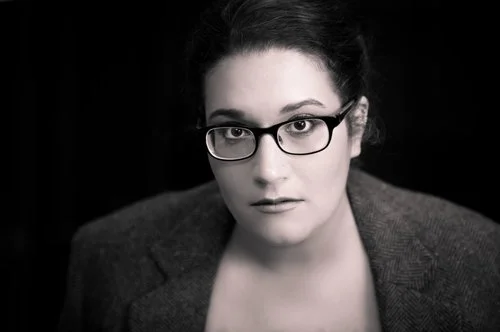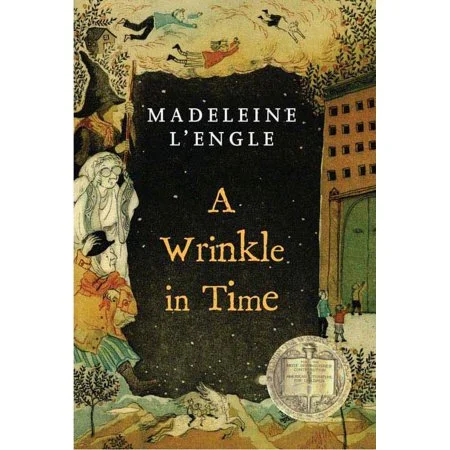2017 has been a wild ride, and we all have our belts buckled tight as 2018 readies for takeoff. Below, the Unbound Writers share their favorite posts and books of our third year.
Lisa Mahoney: #MeToo: Dead Refrigerator Women Demand Vengeance
The theme of 2017 was women revealing stories of horrors done to them by men with power over their lives, things so shocking that they often couldn’t protest at the time. Little did we guess how prescient our review of the original girl in the refrigerator in the story, “Happy Birthday Samantha Dane,” from the collection The Refrigerator Monologues by Catherynne M. Valente would be. Samantha slaves at two jobs, enabling Green Lantern to fight nightly to save the world. As thanks for her sacrifice, his super-villain enemy kills her and stuffs her into a refrigerator. She’s just a plot device in his story. Well, surprise, surprise, Samantha comes back, stands up and tells all to us and her dead friends, just like the women consigning Congressmen, Hollywood A-listers and media executives to their much-deserved punishments in the real world this year. Hell hath no fury like a woman with sympathetic friends.
Amanda Boldenow: The Future Is Female
It’s fitting that the original “The Future is Female” slogan was coined by Labyris Books, the first women’s bookstore in New York City, as books and film are finally catching up to the prophecy. The phrase has gained new prominence in post-Trump America, and consciously or not, in the post-superhero world, too. Dialoguing with C.S. Peterson and Mark Springer about the film Logan and the memoir Hillbilly Elegy in “The Bewilderment of the Blue Collar Hero” brought the empowering phrase to mind when discussing the film’s young protagonist, Laura, and her setup as the future of the X-Men, superheroes, and women in fiction and cinema. Laura is young because the idea of women-as-heroes is young. Laura is voiceless, like the woman stuffed in the refrigerator mentioned by Lisa. But like Valente’s Samantha, Laura’s is only finding her voice for ears that weren’t listening before. As the film concludes, Laura speaks, and her voice is a signal of things to come: women will no longer be silent, voiceless, and props in someone else’s story. The world of Logan’s glory days may be fading, but that doesn’t mean heroics and hope are fading, only that the torchbearers are changing guard, and the future will be better for it.
Theodore McCombs: The Consolations of Theodicy
Is it too melodramatic to say this year has tested us? Whether it’s politics or natural disaster, the year’s events have put to work the models we use, implicitly or explicitly, to explain evil, suffering, and misfortune in our world. These questions are the usual haunt of religion and philosophy, but in literature, speculative fiction really leans in, prepared to challenge our ideas about suffering in true extremity. That’s certainly the case in Death’s End, the third and final book in Cixin Liu’s Three-Body trilogy, which grapples with the end of Earth and the whole universe. My favorite post of the year, though, has to be the 20th-anniversary retrospective that C.S. Peterson and I did for Mart Doria Russell’s The Sparrow, in concert with Canticle for Liebowitz and The Book of Strange, New Things. There’s something refreshingly candid about science fiction that engages openly with theology, an alignment of subject and scale that lets the reader reach some new insight or emotion around the problem of evil—and hopefully return prepared to face the present day a little more philosophically.
CS Peterson: We’re in This Mess Together
I know we’re supposed to highlight only one post in our best of 2017—but I couldn’t decide between the Unbound Writers’ review of Tool of War by Paolo Bacigalupi and the review of The Left Hand of Darkness by Ursula K. Le Guin that was part of the “Cold Weather Classics” post, along with Sean’s review of The Shining, and Amanda’s review of The Lion the Witch and the Wardrobe. I even tried flipping a coin, but in the end they both made the cut.
The reason: Both books speak profoundly to the present moment. They also demonstrate the speculative literature’s power to warn and offer hope while simultaneously entertaining its readers. In both books characters overcome profound difference, prejudice, and learn to appreciate and work with each other.
We are in the midst of an accelerating period of worldwide change that is fundamentally altering human social interactions and endangering the survival of our species: Automation is changing human work. Quantum computing will speed that process up. Climate change is altering the ability of human beings to survive in fragile environments, resulting in mass migration, conflict, and even more massive migration.
This year has been a difficult one. When there is suffering we, as individuals and nations, have a tendency to turn inward. Perfectly understandable—Maslow’s hierarchy of needs and all that; survival of self first, nation first. But the changes that are underway will make the Industrial Revolution and the Irish potato famine look like dress rehearsals for what is on our very immediate horizon. In the Britain of 1840’s there were workers displaced by technology, starving migrants, and failed harvests. Dickens initially thought to write a persuasive pamphlet to inspire charity and warn against the dangers of ignorance and want. Instead he wrote A Chistmas Carol “on behalf of poor children [that would] have ‘twenty thousand times the force’ of a government pamphlet.” A narrative that personally engages the reader is a powerful thing; story is that effective. Tool of War and The Left Hand of Darkness are more ambitious—and more necessary—than any persuasive pamphlet. Each in its own way reminds us that we got into this together, and the only way out is with each other. If we try to go it alone we will perish.
Sean Cassity: Strange Weather by Joe Hill
When the real world feels like the opening chapters of an apocalyptic novel, an apocalypse you can wake up from is surprisingly refreshing. One of the best things I read this year, Joe Hill’s collection of four horrifying short novels, Strange Weather, ends with “Rain,” in which the dark clouds over your neighborhood are about to drop deadly shrapnel no umbrella can hope to repel. As the protagonist treks from Boulder to Denver after the first ravaging rain and basically walks past my house, I felt a sense of relief that this terror, at least, was not real. It is vividly told with elements of fantasy (like there’s a Sizzler in Colorado) and the skies are clouding over again while she’s still outside. My fingertips ripple into the pages with concern for her and the other characters, but then the story is over and I close the book. It was a tense journey, but it’s done. I put the book down, open Twitter, and enter a realm of horrors that seems like it will never quit. I like Joe Hill’s world better.
Mark Springer: Don’t Give Up Your Humanity
Nothing lasts forever, not even the horror show that was 2017, but don’t assume the future will bring progress of its own accord. We’ve been making that mistake for the better part of fifty years (if not fifty centuries), and now we’re paying for it, big time.
Tempting as it is to wish for a simple solution to the generally stupid state of affairs we’ve created for ourselves, the truth is, it’s going to take a lot of hard work just to stop the bleeding. We can’t wait around for some idealized epic hero to set the world to right. Ken Liu interrogated that fantasy in The Grace of Kings and found it lacking; he showed us that the men and women who shape history are more complicated, and more flawed, than we might like to admit.
It’s time to accept that idealized heroes won’t be saving the world. Better to be like Rachel, the protagonist in Borne, Jeff VanderMeer’s sublime and brilliant biotech-apocalypse love story. For Rachel, every day is a struggle to survive in a ruined world. And yet, despite the life-and-death stakes, she refuses to give up her humanity. By preserving and nurturing the best of her nature, even when it seems futile, Rachel is able to create deeply human relationships with unexpected allies—relationships that open the way for radical change.
Rachel’s fight is not an easy one. Success is not guaranteed; neither is survival, for that matter.
It’s the same for us. If that sounds melodramatic, you haven’t been paying attention.


































There is so much out there to read, and until you get your turn in a time loop, you don’t have time to read it all to find the highlights.